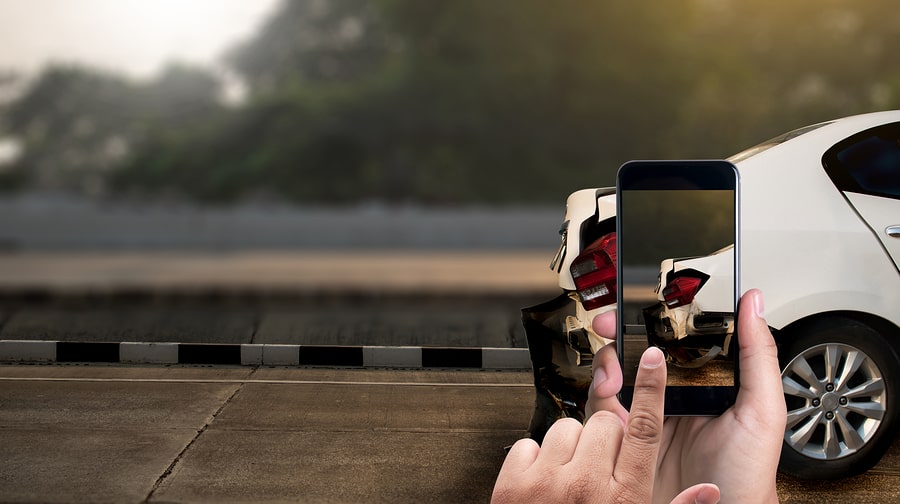Summer is almost here, and all across the country families, friends, and solo travelers are beginning to plan their summer road trips. Travel experts anticipate that approximately 100 million Americans intend to take a vacation in 2019, and many of those will be on the road. While everyone plans and hopes for a safe trip, nothing in life is certain. Cars break down, bad weather can make roads suddenly dangerous, and accidents happen. Travelers can be injured outside of their vehicles too; anyone who hikes, bikes, swims, or walks in an unfamiliar place may be at risk for accidents and injuries. When something unexpected occurs, it can be even more stressful if you are far from home. So before you pack up the car and take off on your next great American road trip, here are a few suggestions to help you to better prepare:
Practical Tips for a Safe Trip
Plan your trip. This may include:- Your departure time each morning, but build some flexibility into the schedule.
- Your route. Planning before you leave home can help you avoid the worst of the traffic and road construction. For example, avoid traveling through major cities during the height of rush hour, if possible.
- Locate and plan rest stops in advance, because there is nothing worse than being stuck in traffic or far from services when you or a passenger desperately needs to stop.
- Arrange to arrive at popular tourist attractions at the best time of day, and not fifteen minutes before they close.
- Make reservations ahead of time. In the busy summer months, accommodations fill up fast, but you can reduce your stress and avoid having to stay somewhere uncomfortable or inconvenient.
- Service your vehicle. Minimize the risk of a breakdown in an unfamiliar area by performing necessary and routine maintenance on your vehicle, such as an oil change, tire rotation, and battery check, before you leave home. If you are towing an RV or trailer, don’t forget to have it serviced as well, and make sure your trailer hitch is secure.
- Check your tires. Your tires may be over- or underinflated, or have worn treads. On the road, potholes, debris, or steep curbs may puncture a tire, or you may have an undetected slow leak. Tire problems can be more than an inconvenience. A tire blown at high speed can cause a serious accident, so do what you can in advance to reduce any potential danger.
- Research vehicle recalls. It can be difficult to keep track of every safety recall. You can check whether your vehicle has been recalled by entering its Vehicle Identification Number (VIN) on the National Highway Traffic Safety Administration website. NHTSA also has recall information for tires and child safety seats.
- Prepare an emergency kit. It is always a good idea to travel with a first aid kit and an emergency roadside kit in your vehicle, even when you are close to home. You or someone else in distress may need a car jack, tire pressure gauge, jumper cables, flares, flashlights, and/or basic repair tools. You should also pack a car cell phone charger, emergency blankets, extra clothes, water, nonperishable foods, maps, and the phone number of your roadside service provider.
- Drive a vehicle that is equipped with a rear camera. If possible, drive a vehicle that has a rearview camera. Research shows that these cameras can be a valuable lifesaving device.
- Keep children and pets safe. A child or animal left unattended in a parked car can quickly develop heat stroke. Even with the windows down or the air conditioner on, children and pets should never be left alone in a vehicle.
- Get plenty of rest. Road trips are fun, and you may want to get all that you can out of your vacation, so it can be tempting to push your limits. However, driving for long periods can cause drowsiness, reduced focus, and increase the chance of a driver falling asleep at the wheel. Go to bed at reasonable times each night, and get sufficient hours of sleep to ensure you will be safe on the road the next day. Stop frequently when you are traveling, take breaks whenever needed, and share driving responsibilities with the other licensed drivers in the vehicle. Avoid nighttime driving if possible. According to research by the National Safety Council, fatal crashes are three times more likely at night.
Keep on the Right Side of the Law
- Be vigilant on the road. Always practice defensive driving. Other travelers may be lost or confused in an unfamiliar place. As well, when the temperatures are warmer, more people want to be outside, so be sure to watch out for pedestrians and bicyclists.
- Never drive after drinking. Driving under the influence of alcohol or drugs is dangerous, illegal in every state, and carries severe penalties. As well, know that even over-the-counter and prescription medications can affect a person’s reaction time and driving skills.
- Stay alert. Avoid distracted driving, including using devices, talking on the phone, texting, eating, drinking, and reading. Cell phone laws vary by state. Know and adhere to all laws regarding hands-free mobile phones and bans on texting while driving.
- Safety first. Being on vacation is not an excuse to forgo safety standards. Don’t speed, obey all traffic rules, and buckle up, every time. It is also good practice to refuel when your gas tank hits the one-quarter mark. Don’t risk running out of gas and becoming stranded in an unknown or remote area.
- Ensure your driver’s license is current. It may seem relatively unimportant, but don’t risk getting fines or other penalties on vacation.
- Make sure you have car insurance. The law on car insurance varies by state, but no matter where you are going, it is essential to have insurance protection.

